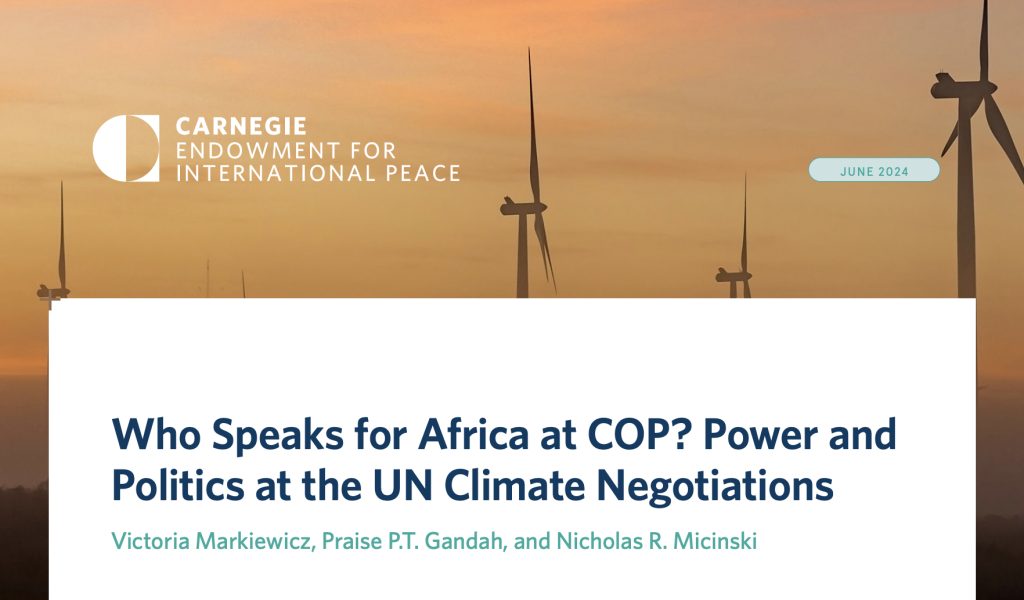Is More COP Representation Enough to Move the Needle on Africa’s Climate Priorities? – V. Markiewicz, P. Gandah, & N. Micinski

A research team at CCI recently published an article with the Carnegie Endowment for International Peace. In the article, Victoria Markiewicz (UMaine SPIA and CCI graduate student), Praise P.T. Gandah (lecturer at Midlands State University in Zimbabwe), and Nicholas R. Micinski (UMaine SPIA and CCI faculty) explore the dynamics surrounding Africa’s representation at COP.
African countries—which suffer many of the worst effects of climate change despite producing less than 4 percent of global greenhouse gas emissions—have dramatically increased the size of their delegations to the United Nations’ climate conference. But delegation size is just part of the picture. African nations are represented by a complex constellation of public and private actors, each bringing their own expertise and priorities. Understanding this landscape can help policymakers make sense of negotiation processes and outcomes.
| About the Authors |
| Victoria Markiewicz works in community organizing at a grassroots organization, the Granite State Organizing Project. She works with the community on issues such as immigration, environmental justice, and racial equity in New Hampshire. Markiewicz received her master’s degree in international affairs at the University of Maine with a focus on climate policy and has conducted research projects on climate migration and climate justice with field work in Zimbabwe and Egypt. |
| Praise Percy Tinashe Gandah is a lecturer in the Department of Community Studies at the Midlands State University in Gweru, Zimbabwe. He holds a bachelor’s degree and a master’s degree in sociology from the University of Zimbabwe and is currently studying toward a PhD in sociology. He has conducted research on climate migration, natural resource–based conflict, domestic communal land-grabbing, and water scarcity and adaptation in rural and urban Zimbabwe. |
| Nicholas R. Micinski is assistant professor of political science and international affairs at the University of Maine. His research focuses on global governance, particularly how states and international organizations respond to refugees, migration, climate change, and peacebuilding. Micinski has published two books: Delegating Responsibility: International Cooperation on Migration in the European Union (University of Michigan Press, 2022) and UN Global Compacts: Governing Migrants and Refugees (Routledge, 2021). |

